
The African Development Bank (AfDB) recently published its flagship annual report, the African Economic Outlook 2020, in time for the African Union Summit of Heads of State, where it testified to the promising rate of growth by African countries as well as challenges such as economic inequality. Tamrat G. Giorgis, Fortune's managing editor, sat down with Akinwumi Adesina (PhD), president of the half-century-old Bank to opine on new opportunities for employment, income inequality, debt structure and how GDP is not edible.
Fortune: How much of that injection of new capital worth 115 billion dollars into the AfDB, doubling the Bank’s capital base, will shift the bank from its traditional focus on financing infrastructure in Africa into private sector support or other areas that are crucial for the economy of Africa?
Akinwumi Adesina: I am very delighted with the tremendous increase in the capital of the Bank. Our shareholders expressed tremendous confidence in us. The capital increase of the Bank went from 93 billion dollars to 208 billion dollars. It is the largest increase in capital since the bank was established in 1964. I am delighted by that.
I am also delighted for African countries. But it is not just the capital of the Bank itself. We also have a concessional arm of the Bank called the African Development Fund that allows us to invest in low-income countries and fragile states. We replenish it every three years. It was replenished in December of last year with a total amount of 7.6 billion dollars, which is an increase of 32pc compared with what we used to have.
Q: Any change in focus or priority for years to come?
We are not going to do more new things. We are just going to do more of what we have been doing best. And those areas have been set. It is called the "high-fives" of the Bank. It is about helping to light up and power Africa; to feed Africa; to industrialise Africa; to integrate Africa and to improve the quality of life for the people of Africa.
In the last four years, we have been able to finance and to connect 18 million people to electricity. That is massive. And we’ve been able to provide access for 140 million people to [utilise] agricultural technologies for enhanced food security. That is incredible. We have given 13 million people access to finance, most of those actually small and middle-sized enterprises.
Through our investment in infrastructure, we have 101 million people with access to transport. When you take water and sanitation, which is important for the quality of life, we provide 16 million people with access to water and sanitation. Those are all the things we are going to do more of.
Now, the exciting critical projects that are going be landmarks as you look down the next three, four or five years, the first one is going to be in energy. It is going to be in the Sahara. It is called the “Desert to Power,” which is across 11 countries. That will provide 250 million people with access to electricity, and 90 million of those are going to be off-grid.
The second one you are going to see us spend a lot of money on is the empowerment of women. I launched the initiative called “Affirmative Finance Action for Women in Africa”, to help mobilise three billion dollars of financing only for businesses of women.
The other one is going to be on youth. We’re going to spend a tremendous amount of money on the youth, because I do not believe that the youth are the future of Africa. They are the present of Africa. They need to have access to finance. We have started talking about how we will help establish what is called Youth Entrepreneurship Investment Banks that are going to be banks supporting or working for young people in the continent.
Of course, we will continue to invest in infrastructure. You cannot have development without infrastructure. You need rail, ports, ICT infrastructure. These are bread and butter stuff for us, which we do every time and we will continue to do. Especially, given that the African Continental Free Trade Area, which has opened tremendous opportunities for Africa. All of that just to say that we have quantum capital. We will continue to do more of what we are doing but at a greater scale. We will identify some of the areas that are going to be landmarked going forward. We are all set.
Q: The goal is to bring economic growth to Africa and somehow lift people from poverty. Largely, this is being measured by gross domestic product (GDP). Last week, you said in a statement that “you can’t eat GDP”. But what else do you have other than GDP to measure an economy?
It is not about what you measure. GDP is the standard thing that we use in economies to measure growth. When you say that you are growing and that is okay … but people do not eat it.
If I say GDP per capita is 15,000 dollars, what does that mean for you? Are you going to take that to the bank and use it as security to get a loan?
We have got to look beyond the numbers. We have got to look at what they mean in the lives of people. You want to make sure that it is not just good numbers that we are talking about. It is how many people have access to health, to water and sanitation, how many young people are getting jobs.
Akinwumi Adesina (PhD).
How are you going to make sure that the quality of life is going up?
That is what really matters. Growth is only meaningful to the extent to which it impacts the lives of people. That is my point, and I will continue to make that point. Growth must be inclusive, but growth must be at a faster level. Africa is doing well; do not get me wrong.
If you take a look at our growth projections for this year: it is about 3.9pc and next year is about 4.1pc. But we need to go double-digit so that you have a quantum growth that can actually lift hundreds of millions of people out of poverty. And we must make sure that the growth is targeted.
Take a look at rural areas in Africa, where we are investing as AfDB. We are investing for over 10 years, 25 billion dollars in agriculture. Why? Because 75pc of the poor are actually living in rural areas. We want to make sure that we turn agriculture into a big business that works for them, not just for the big guys. We want to help. African countries develop special agro-industrial processing zones. Whether you are processing tea, coffee or cocoa, you will add value to it, because you will have the infrastructure in rural areas that allows food and agro-businesses to process and add value to food.
That will create new results of economic prosperity that the youth and the poor in the rural areas will have their [quality of] life go up significantly.
Q: The AfDB has a growing concern of inequality in Africa. If that is the case, are you not alarmed by the impact of liberalisation in African economies that the Bank itself is advocating?
The issue of inequality will always continue to be very important. How you share resources is really going to determine who benefits from growth. How do women benefit from growth if they do not have access, for example, to property rights, access to land? How do young people benefit from growth if they do not have financial ecosystems that allow them to have the finance they need to turn their ideas into real businesses? Those are the real issues.
I grew out of poverty. For me, poverty is not theoretical at all. You talk about Gini Coefficients; I was part of those people they used to measure. We have got to be practical. We have got to make sure that we are doing things that impact the lives of people. And that is what the AfDB continues to do.
Let us even take the case of what it means in terms of economies-to-economies. Look at some other countries that are growing today; you have countries that are doing so well. Rwanda is at about 8.2pc. You look at Tanzania, Ethiopia, Senegal, Côte d'Ivoire. These are some of the top-performing countries that we have.
But what happens to the fragile countries? What happens to the smaller states like Mali and Niger? Because they are landlocked countries and they are facing fragility, which actually makes their growth recede. We have got to make sure that growth is not just total growth but also inclusive growth. On this, I think Africa is actually doing well according to the numbers that we have. If you look at the growth number, yes 3.9pc is what we see for the continent for this year. But do not forget 20 countries in Africa are growing at three percent to five percent and 20 countries above five percent. We just have to make sure that growth is more even. Even across regions and countries.
Q: When it comes to the best performers in Africa, their growth is driven by public expenditure that is largely financed by loans from the likes of China. But you do not seem too worried about the prospect of a debt crisis. Why?
Why do I have to worry when we do not have a crisis? If you look at the mean debt-to-GDP ratio of Africa by 2018, it is about 56pc. Yes, it has gone up from roughly about 38pc from where it used to be in 10 years. But do not forget that the debt-to-GDP ratio of Africa today is still within the manageable level, almost at about 34pc. We do not have a systemic debt problem in Africa. We do have particular countries that are over-extended in terms of debt. And so, they may be at risk of debt distress.
Q: Does that include Ethiopia?
It is one of the countries that I admire the most. Ethiopia’s economic growth has constantly been very high over more than 15 years. The question you have to ask yourself is, why? Ethiopia takes debt, but Ethiopia is not taking debt for consumption.
You have got two kinds of debt that you can take. If you have a credit card, you can go take your credit card and buy hamburgers. That is one kind of debt. Call it "hamburger debt". You take the second credit card and you invest in real estate. Now, are they the same kind of debt? The quality of debt matters. What are you spending the debt on?
If you are taking debt to invest in quality infrastructure that is going to allow you to unlock growth and income streams in the future, that is good debt. But if you are taking debt to pay for economic expenditure, that is what I call "hamburger debt".
But that is not what Ethiopia is doing. Ethiopia is investing massively in infrastructure. We are supporting Ethiopia, for example, to construct the road, the highway that links Addis Abeba to Nairobi, all the way to Mombasa. One thousand kilometres. The African Development Bank invested a billion dollars in that. Look at what it has done.
It has increased the trade between Ethiopia and Kenya by 400pc. And you are a land-locked country, so it gives you access to the Mombasa port very fast. The second one we are working on right now with the Prime Minister is designing the standard gauge that will link Ethiopia back to Sudan, among other things that we are doing. The challenge of Ethiopia has to do more with the revenue profile, it has to do more with exports and the ability to salvage some of that debt.
Q: The expenditure and domestic mobilisation should be a source of worry. Do you not agree?
There are issues across many countries. When you look at the whole debt profile, a lot of the debt that has been taken is … the composition is changing.
Take, for example, 35pc of the debt is coming out of domestic debt. That is coming out of the private sector. The other part of it is that, as countries have done well in terms of the macro-economic environment, they are able to get ratings. They can actually easily go to Europe to boost their own bonds to raise money on international capital markets.
You take, for example, also the increased importance of bilateral debt, and that’s why you mentioned the case of China, a non-Paris Club debt, and that is rising. But Africa does not have a systemic debt crisis at all. I do not want any kind of news that is not based on data.
However, we need to be better disciplined in terms of public expenditures. You spend within what you have. And that is very important - the efficiency of public expenditure. Secondly, a lot needs to be done in mobilising domestic financing. If you have, for example, tax-to-GDP ratios that are quite low in many countries, you have a lot of room to mobilise more taxes and improve the tax administration. And the effectiveness of that in countries is very important.
Thirdly, it is the size of the institutional investors that we have. Pension funds, sovereign wealth funds, insurance pools of funds. In Africa, total, 1.8 trillion dollars. If we actually do a good job at that, leveraging a lot of that to go into investment in power, in water, in roads, in rail, do you not think we are going to be making faster progress without getting in debt? It is how you actually do that.
Q: You spend a lot of money on infrastructure hoping that the economy will shift from being agriculture-led to manufacturing-led. That did not happen.
Well, that is what needs to continue to change. For example, Ethiopia is, and I want to commend the Prime Minister for opening up the economy, making it easier for the private sector, not just the government. This is also part of the problem there. In Africa, more generally, and not just Ethiopia, most of the infrastructure expenditures are covered by the government. Thirty-percent of all the infrastructure expenditure in Africa is done by the government.
But for quite a lot of them, they can be done through PPP [public-private partnership] arrangements. Ethiopia has done a very good job of liberalising some of the service sectors - the financial services, the telecom sector. Those are very good things that will bring in private capital; the government does not always have to bear the whole load.
Q: We now see the US being quite aggressive in trying to dislodge China from its foothold in Africa. There is a battle between the East and the West for economic dominance over the continent. They say that Africa is the last frontier. To what extent does this worry you?
It does not worry me at all. Africa is not a frontier for anybody to conquer. Africa is an investment destination that everybody wants to pay attention to. Take a look at it: you have the China-Africa summit; the US-Africa summit; the India-Africa summit; the Japan-Africa summit and the Russia-Africa summit. What are they saying?
Q: Africa is the last frontier?
It is not a frontier. It is that Africa presents a tremendous opportunity that everybody has seen. Look at the population that Africa has, which is going to be driving consumption. You look at urbanisation. This is the place to be, right?
Africa chooses its friends; its partners and it develops arrangements with multiple plans, multiple groups of investors or countries that it wants to work with.
Africa is mature enough to determine what it wants to do and who it wants to do it with. What we say in AfDB is this, make sure that any transaction that you do is transparent; you have good governance; you make sure corruption is zero. I do not even think reducing corruption is the issue; we must have a corruption-free Africa. Zero tolerance for that.
And making sure that negotiations with any country is not asymmetric. It is in your interest. You look first for what is in Africa’s interest. Take, for example, what we do at the AfDB. We have got a lot of countries that come into Africa interested in minerals, mining, metals, oil and gas, but it is a very asymmetric negotiation. African countries give away their mines and oil and gas fields and production sharing agreements are not necessarily in their interest. The AfDB has something that is called the African Legal Support Facility, which we use to help countries negotiate even contracts they accepted in the past that are not in their interest.
We helped a particular country to re-negotiate their debt obligation to a very large country. Their debt obligation went down by 94pc, because we helped them to negotiate better.
Some of the countries that are coming to negotiate with you have more tax lawyers than your entire country has. This is our role as AfDB. But when it comes to the issue of the big elephant in the room, China is a very big part of Africa. Bilateral trade between China and Africa is several billion dollars. Bilateral trade with the US is also rising. It is not as big as it is with China, but they all bring different things.
At the end of the day, Africa has to determine what it wants and the terms and conditions of those engagements.
Q: You are well exposed, highly traveled and have dealt with different countries in and outside of Africa. What keeps you up at night? What is your biggest concern?
I have a mindset that is not a problem-focused. I have a mindset of opportunities. How can I help? How can my bank help? How can I work with others and partners, because we do not work alone to unlock opportunities for Africa continually?
There are challenges that one has to pay attention to. One big challenge is the whole issue of youth unemployment. That keeps me awake at night. The biggest challenge that Africa has, the biggest threat - as bad as terrorism is, it is not the biggest threat - the biggest threat is youth unemployment.
At the AfDB, we are now thinking of how we can support our young people. You can say, well, the education system has not prepared them well. We can agree. When they go and get skills, they come back and get no jobs. The financial ecosystem is not designed for young people. The idea dies in their head, they become more discouraged and you create a social crisis.
One of the biggest things that keep me awake at night is, how do we develop a new financial ecosystem that will support the young people and unlock their potential? Mark Zuckerberg of Facebook, if he was living in Africa, would not succeed, because he would not have had access to that amount of resources that he had. We are talking now about countries helping to stimulate the creation and establishment of what we call Youth Entrepreneurship Investment Banks. These are going to be banks of young people that will bank on their ideas, that will believe in them, that will help them to grow their business in the life-cycle of their businesses. I want African young people thriving, not going anywhere. Why must they? They must be on this continent. But to do that, you need a financial ecosystem to support them with access to capital that is cheap and can allow them to grow through equity financing.
Q: Are you as much worried about climate change and its adverse impact?
I have been pushing the global community to support Africa’s adaptation to climate change. We, as a bank, are doing our part. We have increased our financing for climate finance from 12.5 billion dollars to 25 billion dollars.
Fifty percent of our financing is going to climate adaptation. We are the first multilateral development bank actually to have that. Climate change and the jobs issue are worrying. Of course, everybody likes to worry about economic headwinds that happen globally.
How do we make sure that we are not on the receiving end of many of these things? The ACFTA offers us a huge opportunity to do that, to make it work so that we can trade a lot more with ourselves and reduce our dependence on external exports of raw commodities that exposes us to commodity price volatility.
Structurally, if we can get the ACFTA to work, do the right things by young people to unlock their potential so that is not demographic crisis management but actually investment management in them but also, at the same time, addressing climate change, I think I will sleep better at night.
PUBLISHED ON
Feb 15,2020 [ VOL
20 , NO
1033]

Fortune News | Jan 18,2020

Sunday with Eden | May 15,2021

Radar | Mar 23,2019
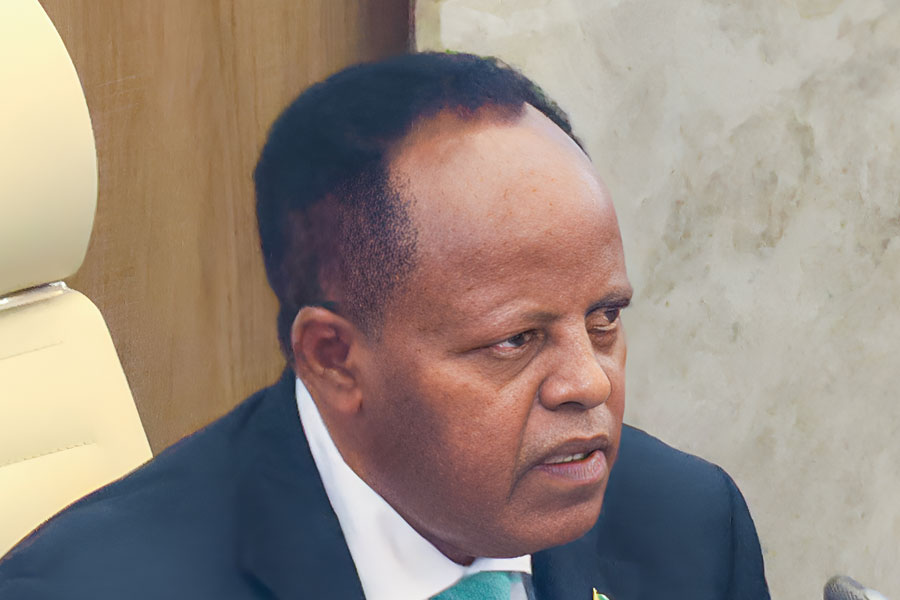
News Analysis | Oct 13,2024
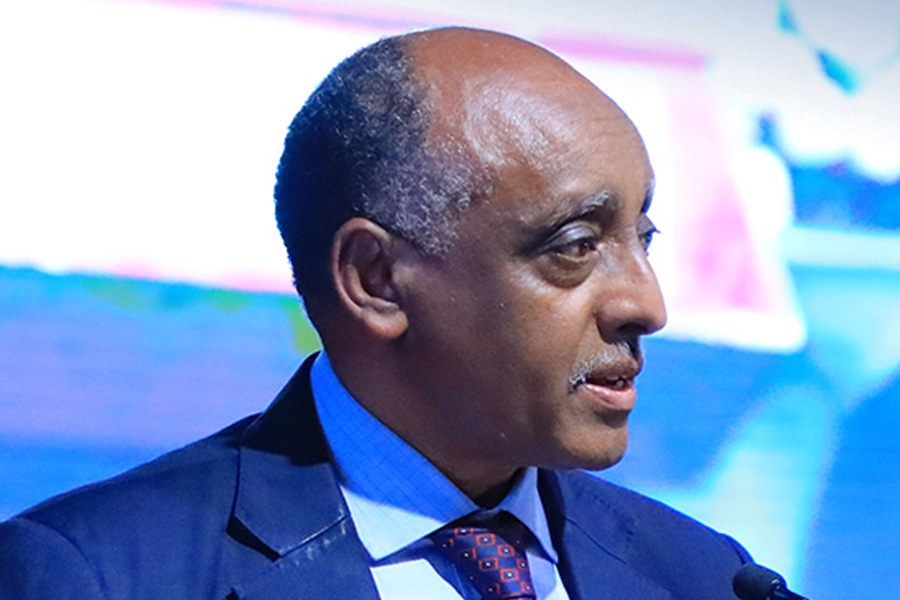
Radar | Dec 15,2024
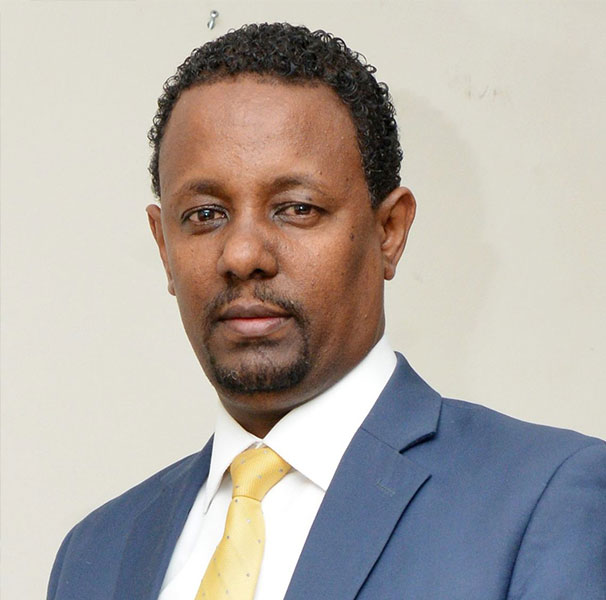
Fortune News | Jan 02,2021

Radar | Oct 23,2021
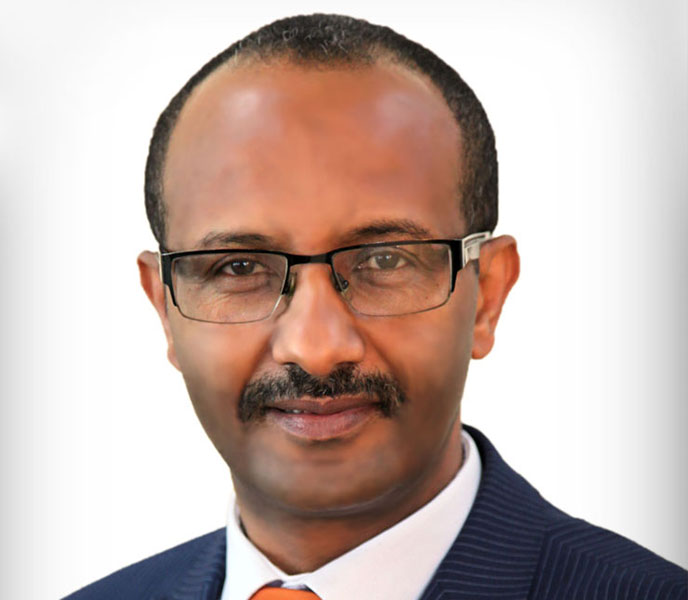
Fortune News | Feb 05,2022

Radar | Sep 27,2020
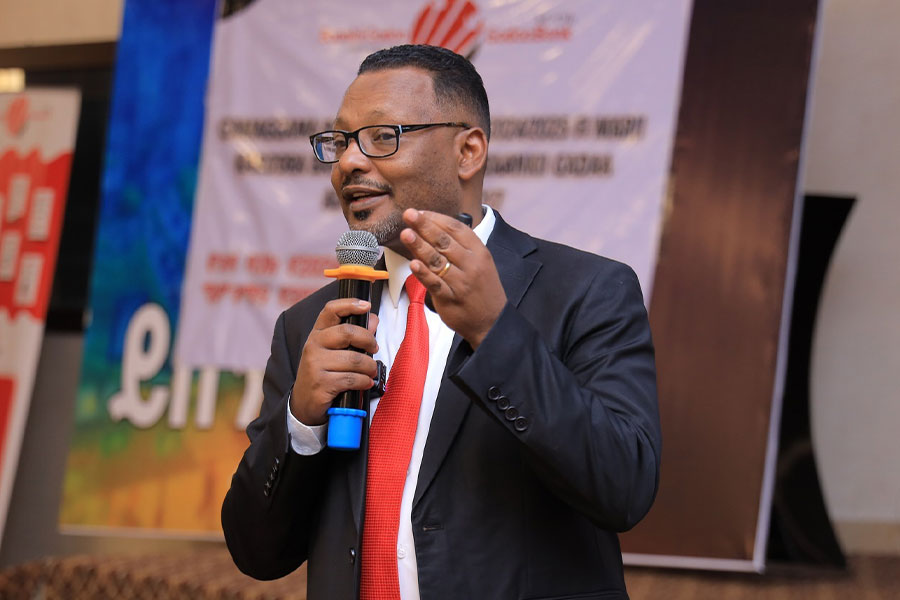
Exclusive Interviews | Sep 07,2025

Dec 22 , 2024 . By TIZITA SHEWAFERAW
Charged with transforming colossal state-owned enterprises into modern and competitiv...

Aug 18 , 2024 . By AKSAH ITALO
Although predictable Yonas Zerihun's job in the ride-hailing service is not immune to...

Jul 28 , 2024 . By TIZITA SHEWAFERAW
Unhabitual, perhaps too many, Samuel Gebreyohannes, 38, used to occasionally enjoy a couple of beers at breakfast. However, he recently swit...

Jul 13 , 2024 . By AKSAH ITALO
Investors who rely on tractors, trucks, and field vehicles for commuting, transporting commodities, and f...

Oct 25 , 2025
The regulatory machinery is on overdrive. In only two years, no fewer than 35 new pro...

Oct 18 , 2025
The political establishment, notably the ruling party and its top brass, has become p...

Oct 11 , 2025
Ladislas Farago, a roving Associated Press (AP) correspondent, arrived in Ethiopia in...

Oct 4 , 2025
Eyob Tekalegn (PhD) had been in the Governor's chair for only weeks when, on Septembe...